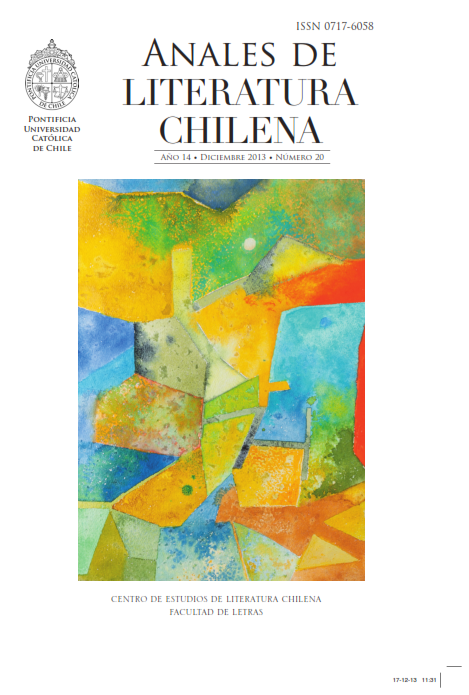To be a woman and write in Chile: canon, critical and gender conceptions
DOI:
https://doi.org/10.7764/ANALESLITCHI.20.04Keywords:
Women’s writing, Chilean critics’, CannonAbstract
Women’s writing in Chile gains strength in the first decades of the 20th century, with their progressive inclusion into the formal education and labor market. The professionalization in the literary field, will also demand that certain rules be included in the national cannon. In this article, we exclusively analyze both the Chilean critics’ expectation regarding women’s literature, and the elements it used to exclude said work from the cannon: masculinization, making it sound childish, autobiographical reduction, uniformity, subtraction from History and death of the writer and the writing will be the most used methods to leave women out of official literature. Thus, in the first half of the century, we can see a difference that puts the sensitive-poet above the feminist narrator, to reach the middle of the century switching this preference starting to recognize the prose writers’ professionalism. We can conclude, therefore, with the writers’ reactions to these critical judgments that expressed so much in the press as their own stories.
Downloads
Downloads
Published
How to Cite
Issue
Section
License

This work is licensed under a Creative Commons Attribution-NoDerivatives 4.0 International License.


